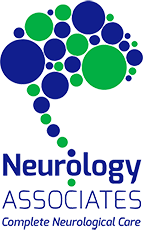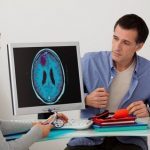Lou Gehrig’s Disease, or ALS: How a Neurologist Can Help
This article first appeared in March 2018 and was updated in July 2023
What is Lou Gehrig’s Disease
Amyotrophic Lateral Sclerosis (ALS), more commonly known as Lou Gehrig’s Disease, is one of the most severe diseases that a person can contract. It attacks cells in the brain and spine that enable voluntary muscle movement, leading to muscle deterioration, paralysis, and the patient’s inability to speak, move, and eat. Ultimately, most people with ALS die due to respiratory failure – their inability to breathe. There is still no known cure.
Despite the gravity of ALS, many patients live up to five years from the time their symptoms first appear; some even live up to a decade. No matter the prognosis, a neurologist in Leesburg, VA can help you and your loved ones face the disease.

Understanding the risk
ALS can strike randomly, regardless of age, ethnicity, and family background. However, around 5 to 10% of ALS cases are familial – meaning you could inherit it from a parent.
A neurologist can help you understand your risk for the disease, not only by looking at your family history, but your entire medical record. He or she can assess whether your experiences of muscle weakness, cramps, or twitching are red flags or isolated incidents.
Recognizing the onset
Since ALS is a rapidly progressing disease, an early diagnosis is essential for an effective response . Once a neurologist has reason to believe you have its symptoms, he or she can guide you through a series of neurological exams that could lead to a diagnosis. These exams include tests like MRIs, which produce detailed images of the brain, and EMGs, which check the activity of muscle fibers. Both can reveal indicators of ALS.
Managing the progression of Lou Gehrig’s Disease
While there is no cure yet for ALS, there are many systems for treating its symptoms and managing its progression. Emerging medication is part of the process – but so are speech and physical therapy, nutritional support, breathing aids, and emotional caregiving.
In 2023, the U. S. Food & Drug Administration approved a new drug, Qalsody (tofersen), under its accelerated approval pathway (where there is an unmet medical need). However, this approval is based on predictions of clinical benefit to patients and more testing needs to be done. Please discuss this option with your physician.
Your neurologist can prescribe medications and coordinate treatments with other healthcare professionals, assuring you and your family that your battle with the disease will be well-supported and dignified. He or she will monitor how you feel through the early, middle, and late stages of ALS, always ensuring that you benefit from the treatment you need.
Finding a cure
Most importantly, every neurologist – whether it be your personal doctor in Leesburg, VA or a researcher elsewhere in the world – supports finding a cure for ALS. Hopefully, in time, there will be.
Sources:
Amyotrophic Lateral Sclerosis (ALS) Fact Sheet, NIH.gov
About the Disease – FAQ, ALSAssociation.org
FDA approves treatment of amyotrophic lateral sclerosis associated with a mutation in the SOD1 gene (April 25, 2023) – https://www.fda.gov/drugs/news-events-human-drugs/fda-approves-treatment-amyotrophic-lateral-sclerosis-associated-mutation-sod1-gene





